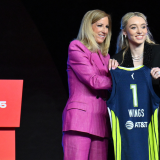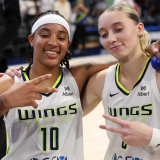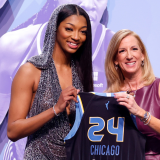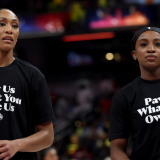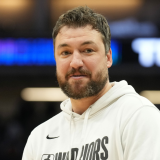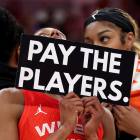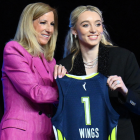Cheryl Reeve is right: The WNBA's physicality problem has hit a crisis point and officiating needs to change
Reeve's Game 4 suspension was justified, but so was her anger

On Sunday night in Phoenix, as the top-seeded Minnesota Lynx's hopes for a WNBA championship came to an end in Game 4 of their semifinal series against the Phoenix Mercury, Lynx head coach Cheryl Reeve was nowhere to be found.
That's because the day prior, the WNBA handed Reeve a one-game suspension due to her "comments and conduct" in the waning seconds and aftermath of the Lynx's Game 3 loss to the Mercury, including "aggressively pursuing and verbally abusing a game official on the court, failure to leave the court in a timely manner upon her ejection with 21.8 seconds to play in the fourth quarter, inappropriate comments made to fans when exiting the court and remarks made in a postgame press conference."
Reeve's outburst began when Lynx star Napheesa Collier was injured as Mercury forward Alyssa Thomas made contact with her leg while successfully stealing the ball and scoring to put the Mercury up 82-76 to all but seal the win and a 2-1 series lead. Collier was ruled out of Game 4 with a left leg injury, and Minnesota was eliminated with an 86-81 loss.
The suspension, while devastating and consequential, was justifiable. Reeve's behavior crossed a line, and her postgame comments -- in which she called the refs "f---ing awful" and called for "a change in leadership at the league level when it comes to officiating" -- left the league little choice.
But it would be wrong for the WNBA to dismiss Reeve's comments as those of a disgruntled coach angry about a loss. They need to listen to Reeve, and to what many fans, players and coaches from across the league have been saying all season (and longer).
The WNBA has gotten too physical, and it is hurting both the players and the product.
I don't say that lightly. I love the athleticism and toughness on display, and particularly enjoy how much that intensity gets dialed up in the playoffs. Over the past couple of years, as more eyes have come to the league and complaints about the amount of physicality officials let the players get away with have grown, my default position has been one of defensiveness.
I think these complaints are often rooted -- subconsciously, in most cases -- in an instinct to infantilize women and a discomfort with seeing women show levels of brute force and aggression typically only seen in men at the highest level of sport. Said uneasiness can be exacerbated when the women in question are Black and members of the LGBTQ community.
But multiple things can be true at once. Those biases can exist and can cloud the conversations around and perceptions of the league, and there can also be a real problem with the style of play and quality of officiating. That's where I land.
Injuries are going to happen. So are incorrect calls. Basketball is a physical game, and that can't, won't and shouldn't change. But it's a balance. Or, at least it should be. The physicality has reached a point where it is enabling ugly basketball and putting the health and safety of players at increased risk. That, combined with the inconsistency of officiating, is leaving players and coaches increasingly frustrated, as longtime, new and potential fans grow disillusioned with the product. The league needs to take these complaints seriously.
The catalyst for Reeve's crash-out was the non-call after Thomas's steal left Collier writhing on the ground.
Minnesota finished Game 3 without Napheesa Collier or Coach Cheryl Reeve.
— espnW (@espnW) September 27, 2025
Coach was assessed a second technical foul and ejected after Collier collided with Alyssa Thomas on this play. pic.twitter.com/6ZNGuUSXi9
While I actually agree with the officials that the play in question wasn't a foul, I also completely empathize with Reeve's frustrations in that moment. The game had been so full of contact that it was hard for either offense to find a flow, and Collier, who was usually matched up with Thomas -- one of the most physical players in the league -- had been whistled for five fouls herself and yet was granted zero free throws.
And of course, this game did not exist in a vacuum. The Lynx's 2024 season ended in overtime of a winner-take-all Game 5 in the WNBA Finals, when the refs called a foul on Alanna Smith in the final seconds of regulation, sending New York Liberty star Breanna Stewart to the line for a chance to send the game into an extra frame. Collier fouled out in overtime of that game and also had zero free throws. Afterwards, Reeve said that the game had been "stolen" from her.

"We were trying to play through it, we were trying not to make excuses. One of the best players in the league shot zero free throws. Zero. And she had five fouls. Zero free throws. Got her shoulder pulled out and finished the game with her leg being taken out, and probably has a fracture," Reeve said postgame on Friday night in her now-infamous press conference.
"And so this is what our league wants. OK, but I want to call for a change in leadership at the league level when it comes to officiating. It's bad for the game. The officiating crew that we had tonight, for the leadership to deem those three people semifinals playoff worthy is f---ing malpractice."
Reeve has not been the only coach (or player) to complain about the physicality and uneven officiating this postseason. Las Vegas Aces coach Becky Hammon took officials to task during the Aces' semifinal series against the Indiana Fever.
"The physicality is out of control, that's for sure," Hammon said. "You can bump and grab a receiver in the NFL for those first five yards, but you can do it in the W for the whole half court. You put two hands on somebody like that, it should be an automatic foul. The freedom of movement, freedom of movement -- there's no freedom. I'm not saying that we're not fouling too. Not saying that. Saying it's out of control," Hammon said.
"Most of my assistants come from the NBA, and they're like, 'this would not fly in the NBA.' This level of physicality would not fly in the NBA."

Ultimately, this issue boils down to two distinct-yet-related problems: The way that WNBA officials are told by those in charge to interpret and enforce the rules, and the quality of referees in the league. Both problems are fixable.
WNBA referees are a part of the NBA's refereeing developmental program, which means they share the same training ecosystem as their NBA counterparts. But that does not mean the jobs are equal. NBA referees are salaried employees who typically only focus on NBA games, while WNBA referees are paid on a per-game basis, and often toggle between working NCAA basketball games and WNBA games, meaning they are regularly operating under different sets of rules and regulations.
While I understand that the difference in season length between the WNBA and NBA could make equal setups hard to implement, providing more money, training, resources and accountability measures for WNBA referees should be a non-negotiable item on the league's offseason to-do list.
But even the most well-trained referees don't make big-picture decisions about quality of play. Those directives come from higher up, which is why Reeve called for a leadership change.
"I think sometimes it's misunderstood that referees make those decisions about the style of play and the interpretations of rules," Monty McCutchen, the senior vice president of referee development and training at the NBA, told Noa Dalzell of SBNation earlier this year. "That's not true. What actually happens is that we have a competition committee for stakeholders, coaches, governors, and general managers -- and that competition committee is the committee that dictates the state of the game."
Reeve has been trying to get a message to those in the competition committee -- and to the WNBA's Board of Governors, to which the committee reports -- for a long time. On Friday night, as she saw her championship hopes crying in pain and felt a season of expectations crash on top of her, she decided to use the podium to make that message crystal clear. Did she take it too far? The league clearly thought so, which is why it issued the suspension.
All she is asking is that the on-court rules be implemented just as clearly and evenly.
Considering the league decided to run things back on Sunday in Phoenix with the exact same officiating trio that were at the helm in Game 3, it doesn't seem like the WNBA is taking her requests seriously.


